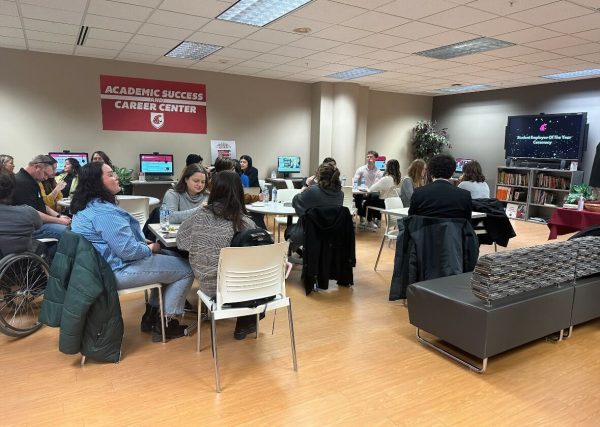An untold story
January 15, 2015
Washington State University doctoral student and Gaza Strip native Abd AlHadi Basheer will share his personal story, entitled “The Untold Story of Palestinian Life,” tomorrow with the Palouse Peace Coalition.
“The idea of the event is to tell my personal story, trying my hardest to explain what it is like to grow up in Gaza during the occupation,” Basheer said. “Rather than just victimizing my people, I want to show the humanitarian aspect of how it is to live in Palestine.”
In 2009, Basheer established contact with Michael Hayes, an associate professor in the Department of Teaching and Learning at WSU, and Melissa Saul, a project director at the University of Hawaii. Hayes and Saul were part of a research team planning to travel to Israel and Palestine. The team never made it to Gaza, but approached Basheer and encouraged him to pursue a degree at WSU.
Basheer was accepted for the 2009 fall semester, but was not unable to attain a visa due to the Israeli occupation of Gaza.
“After not getting a visa the first time, I was feeling sad, but my colleagues at WSU encouraged me to fight for it,” Basheer said. “They started a campaign to allow me a second interview.”
Multiple organizations pledged to help Basheer. The Justice League of Spokane launched its own campaign, and Washington senators Patty Murray and Maria Cantwell wrote supporting letters on his behalf to the U.S. Embassy in Israel.
“It became a global story in a sense,” Basheer said. “A lot of organizations were talking about it and trying to support me.”
Basheer was eventually granted a visa to attend WSU in Jan. 2011. In 2013, he completed his master’s degree in education.
“A year and a half of struggle,” Basheer said. “Every day was a pain.”
Blaine Pitcher, a humanitarian worker who met Basheer in Al-Qastal, became close friends with Basheer through Skype and text messages in 2010.
“He’s one of the hardest-working people I have ever met in my life,” Pitcher said. “Whatever you have assigned for him, he’ll knock it out of the park.”
Pitcher now works as a radiology technician at the University of Washington. He is a staunch supporter of Basheer’s academic pursuits.
“He was the one who told me five years ago that I would be able to come to Washington,” Basheer said. “Every time we meet, he reminds me of that.”
Basheer’s wife, Kara Mochan, is an American-born doctoral candidate at the University of Washington and a psychiatric nurse for Seattle Children’s Hospital. Mochan went to Palestine for a pilot study and witnessed firsthand the mobility restrictions placed on residents of Gaza.
“There’s something really humbling about going there,” Mochan said. “You can’t move around as you please, in order to do anything you have to gain so much permission to move from one city to the next, or even one neighborhood to the next.”
Mochan was humbled by the struggle of her colleagues in Gaza, many of whom were unable to become doctors due to their limited mobility.
“Abd’s story is a very common story of the struggle of being Palestinian and not even having a passport,” Mochan said.
Of the 1.8 million people in Gaza, approximately 64 percent of them are under the age of 25, according to the CIA World Factbook.
Many of these young people are denied the opportunity to seek education outside of Gaza, according to Basheer.
“Yes, it is my personal story,” Basheer said. “But my story is a typical experience of someone who wants to leave the Gaza Strip.”
Basheer plans to work in an international organization or become a professor in the United States.
“The situation in the Gaza Strip is really complicated, the life there is very hard,” Basheer said. “No matter my education, I won’t be able to change Gaza from the inside. I don’t believe I will be returning back soon unless a miracle happens.”
However, Basheer still hopes to provide opportunities for young people in Gaza to seek education. Basheer has already succeeded in bringing four other Gaza residents to the U.S. for educational purposes.
Additionally, Basheer is a coordinator for the Arab Center of Washington, based in Seattle.
“My purpose here is to draw the right picture for the Western people,” Basheer said. “I don’t care who shoots who— we have people who suffer throughout this conflict and my mission is to bring their stories to life.”
Basheer’s presentation will be held at 7 p.m. in the Arts Room of the 1912 Center in Moscow.





















